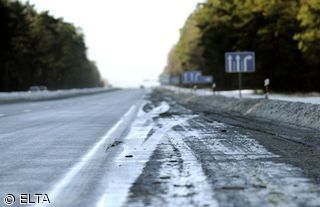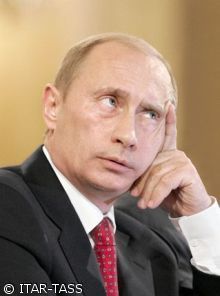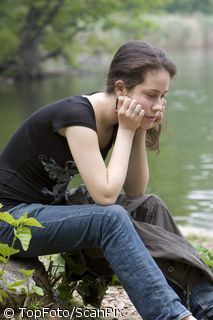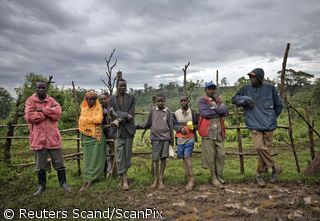44 new ‘princes’ reflect church’s geographical diversity
Published:
22 February 2001 y., Thursday
Pope John Paul II, putting a lasting stamp on the elite group that will choose the next pope, created 44 new cardinals on Wednesday and greatly increased the probability that his successor will be another non-Italian.
THE POPE created the largest group ever of new ‘princes’ of the Roman Catholic Church during a solemn ceremony on the sunlit steps of St. Peter’s Basilica. “Today is a great day for the universal Church,” the pope, wearing resplendent gold vestments and speaking in a sometimes hoarse, trembling voice, said in his homily.
After praying in Latin, the pope read the names of the candidates. NBC’s Keith Miller reported that some 40,000 spectators at St. Peter’s Square cheered, especially when he said the names of the new U.S. cardinals, theologian Avery Dulles and Archbishops Edward Egan of New York and Theodore McCarrick of Washington. Another U.S. citizen in the group is Ukrainian-born Lubomyr Husar.
In naming a record number of cardinals this time around, the pontiff ignored the age limits set by his predecessor Paul VI.
Forty of the new cardinals are under 80 years old and thus qualify to enter a secret conclave to elect the next Pope from among themselves after the death of the Polish-born Pontiff, who is suffering from a series of ailments.
Šaltinis:
msnbc.com
Copying, publishing, announcing any information from the News.lt portal without written permission of News.lt editorial office is prohibited.
The most popular articles
 Preparations for the traditional Mexican Day of the Dead get underway in Mexico City as residents erect alters and bake bread for the deceased.
more »
Preparations for the traditional Mexican Day of the Dead get underway in Mexico City as residents erect alters and bake bread for the deceased.
more »
 In three resolutions adopted in Strasbourg on Thursday, the European Parliament restates its solidarity with O. Orlov, a member of the Russian human rights organization Memorial and winner of the 2009 EP Sakharov Prize, who is now facing trial, denounces the imprisonment of Cambodian opposition leader S. Rainsy and calls on Zimbabwe's President R. Mugabe to put an end to the threat of mass forced evictions.
more »
In three resolutions adopted in Strasbourg on Thursday, the European Parliament restates its solidarity with O. Orlov, a member of the Russian human rights organization Memorial and winner of the 2009 EP Sakharov Prize, who is now facing trial, denounces the imprisonment of Cambodian opposition leader S. Rainsy and calls on Zimbabwe's President R. Mugabe to put an end to the threat of mass forced evictions.
more »
 Marrying diligent driver behaviour, quality road infrastructure and sound vehicles for safer roads across Europe.
more »
Marrying diligent driver behaviour, quality road infrastructure and sound vehicles for safer roads across Europe.
more »
 A group of journalism students in Moscow pose semi-naked for a steamy calendar wishing Russia's prime minister a happy birthday.
more »
A group of journalism students in Moscow pose semi-naked for a steamy calendar wishing Russia's prime minister a happy birthday.
more »
 In the EU27 in 2008, 20% of women and 32% of men aged 25 to 34 lived with at least one of their parents.
more »
In the EU27 in 2008, 20% of women and 32% of men aged 25 to 34 lived with at least one of their parents.
more »
 “Vertical” health funds targeting specific diseases such as AIDS, malaria or TB have achieved some success, but only at the cost of draining resources from basic “horizontal” health infrastructure such as clinics.
more »
“Vertical” health funds targeting specific diseases such as AIDS, malaria or TB have achieved some success, but only at the cost of draining resources from basic “horizontal” health infrastructure such as clinics.
more »
 This autumn, the 2010 European Job Days give jobseekers a chance to meet employers from all over Europe, and find out about working in other EU countries through seminars and workshops.
more »
This autumn, the 2010 European Job Days give jobseekers a chance to meet employers from all over Europe, and find out about working in other EU countries through seminars and workshops.
more »
 During his visit to New York, on 27 September at the City University of New York, Lithuania’s Minister of Foreign Affairs A. Ažubalis, opened a photography exhibition dedicated to the Lithuanian Jewish cultural heritage and conferred an award of Lithuania’s Ministry of Foreign Affairs on former Executive Director of the YIVO Institute for Jewish Research.
more »
During his visit to New York, on 27 September at the City University of New York, Lithuania’s Minister of Foreign Affairs A. Ažubalis, opened a photography exhibition dedicated to the Lithuanian Jewish cultural heritage and conferred an award of Lithuania’s Ministry of Foreign Affairs on former Executive Director of the YIVO Institute for Jewish Research.
more »
 The 26th of September marks the European Day of Languages. Perhaps the Knights of the Order of St John in the Middle Ages prided themselves about the fact that they had eight “langues” but Parliament does better with its daily “Headlines” on its website in 22 languages.
more »
The 26th of September marks the European Day of Languages. Perhaps the Knights of the Order of St John in the Middle Ages prided themselves about the fact that they had eight “langues” but Parliament does better with its daily “Headlines” on its website in 22 languages.
more »
 A proposed new plan focuses on closing the pay gap and opening up company boardrooms to more women. Tackling domestic violence is also a top priority.
more »
A proposed new plan focuses on closing the pay gap and opening up company boardrooms to more women. Tackling domestic violence is also a top priority.
more »